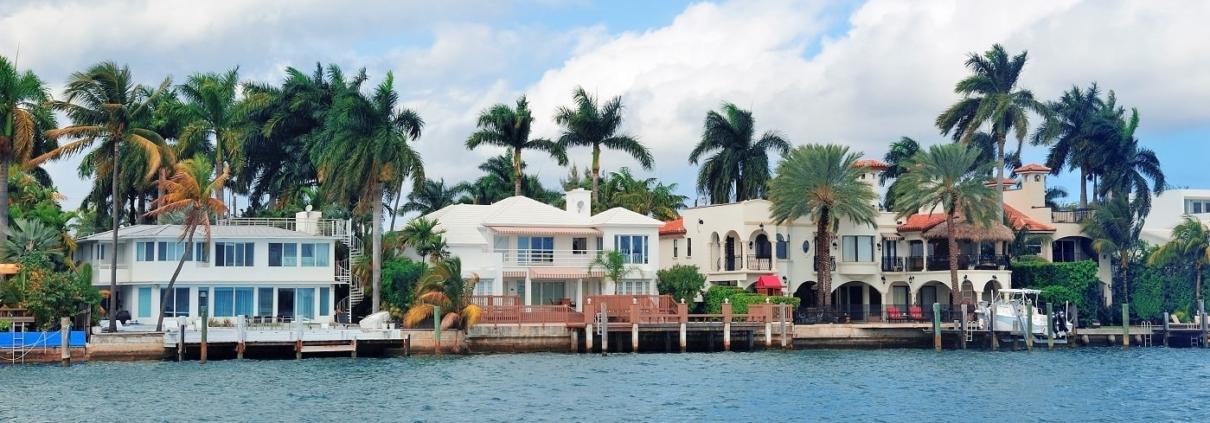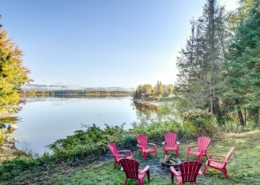A Crash Course in Airbnb Long-term Rentals for Your Property
Due to more visitors choosing to “live anywhere” while working remotely, Airbnb long-term rentals are growing in popularity as a hosting strategy. Find out the benefits and drawbacks of long-term rentals on Airbnb and the steps you need to take to make your home suitable for long-term stays.
While Airbnb has become associated with short-term stays, the platform also offers long-term rentals, which more hosts are beginning to explore and utilise.
The pandemic caused by COVID-19 was a significant contributor to this change. When the demand for short-term rentals declined initially, many Airbnb hosts launched mid or long-term stays to keep their companies surviving. This allowed them to rent out their spaces for more extended periods. After a couple of years have passed, more vacationers can choose an extended stay rather than a quick weekend trip as their preferred option, owing to flexible working conditions.
In addition, for a considerable amount of time, visitors were required by travel limitations to confine their vacation plans to locations that could be reached within a few hours’ drive. Guests are making up for lost time and getting set to go on far-from-home missions that they had to postpone or never had the time for in the past now that most nations have returned to normal.
However, long-term rentals on Airbnb aren’t necessarily merely a trend in the tourist industry. Promoting long-term rental alternatives on Airbnb may help hosts increase occupancy rates and bring in more steady rental revenue, provided that the appropriate strategy and mechanisms are implemented.
Continue reading to learn more about long-term Airbnb rentals, including what they are and the advantages they may offer to your vacation rental company.
What is the Difference Between Long-term and Short-term Rental Stays?
According to Airbnb, a typical stay of fewer than 28 days is considered to be short-term. When a stay reaches 28 days or more, Airbnb will classify the accommodations as long-term or monthly rentals. However, because hosts are the ones who determine whether or not to make their houses accessible for more extended stays, not all rentals on Airbnb allow for long-term reservations.
Short-term and long-term stays may have different motivations for renting. The majority of those who rent for a short period are looking for a break or a holiday. Once their booking is finished, they will often return to their house.
On the other side, persons who are travelling for employment (such as medical professionals), or for the goal of furthering their education, are likely to book long-term apartments on Airbnb. Recently, long-term Airbnb rentals have become more popular among those who work remotely. In this particular instance, the visitor is not necessarily going to the location for work-related reasons; rather, he or she is going there to get away from the monotony of working remotely.
What Changes Have Been Introduced for Long-term rentals on Airbnb?
Airbnb now enables visitors to choose and book longer stays under the “places to stay” area of their website, making it easier for visitors to discover long-term rentals. For reservations with a duration of 28 days or more, longer-staying accommodations will be shown. Additionally, the listings for these long-term Airbnb rentals will indicate that they have facilities suitable for extended stays.
Why Are Airbnb Long-term Rentals Becoming Popular?
The number of long-term stays has gone up by more than 30% since 2019. Furthermore, according to statistics found online, this figure is only anticipated to rise in the coming years. So why are Airbnb long-term rentals popular with both hosts and guests?
For guests
The coronavirus epidemic has altered the way we live our lives and take our holidays. When international travel was halted in the majority of nations, many individuals began looking for other vacation options.
Nearcations or “staycations” thus gained popularity as a remedy. Travelers began to choose domestic travel more and more since it still enabled them to have a holiday. Travelers recognised that their own country could have additional attractions even if they may not have been planning a vacation elsewhere. Additionally, as domestic travel is often less expensive, visitors may afford to prolong their vacation dates and stay longer.
The property market and companies have both been impacted by the epidemic. In the long run, a large number of individuals will continue to work from home. Professionals who work from home are renting holiday homes with “home offices” and fast Wi-Fi. This enables people to work while yet taking in a different environment.
Additionally, college students and interns may reserve monthly stays in long-term Airbnb properties. Compared to hotels and private dorms, this will provide them with greater privacy.
For hosts
Who is facing a decline in reservations, do long-term and monthly rentals provide a steady source of revenue? Although short-term rental hosts often make more money, it might become a concern if reservations decline.
Lower occupancy rates may be fixed by renting for an extended period. Many visitors who reserve longer-term accommodations want to remain for at least one month, if not more. Long-term rentals on Airbnb may support owners’ businesses during their quieter seasons.
Longer rental durations may also lighten the pressure on hosts since they won’t have to spend as much time and money advertising and maintaining their properties.
Airbnb Long-term Rentals: The Pros and Cons
Offering a prolonged stay may benefit hosts, but some possible disadvantages should be considered. Here are the key advantages and disadvantages to taking into account when you decide whether to start providing alternatives for monthly stays (or maybe even stays spanning several months).
Pros
A steady stream of income
Long-term stays may provide Airbnb hosts with a reliable source of income (even during low season and slow months). If you’ve been seeing a reduction in bookings, it might assist sustain your profitability since your revenue is likely to be consistent throughout the year. Additionally, it will help with recurring costs like mortgage payments and other fixed bills.
Less time-consuming
There are fewer management duties associated with long-term leases. When you only rent to one visitor at a time, compared to short-term renting, tasks such as guest communication, check-in and check-out, and web marketing are simplified. After the visitor has checked in and settled into the property, you will often only need to contact them if a problem develops.
Fewer amenities
Long-term rentals provide you with greater freedom when it comes to amenities since you may decide whether to fully or partially equip your home. In reality, many renters who are seeking a longer lease bring their furnishings. This may save you money on further rental furnishings purchases.
In contrast, while renting for a short period, your property must be completely equipped. In addition, competition in the short-term rental business may be severe. This is because the guest-to-rental ratio often favours visitors, who have their choice of available rentals. Consequently, if you want your internet listing to stand out, you will need to invest more money in luxury features like a hot tub.
This is less frequent for Airbnb’s long-term rentals since various visitors demand different amenities. Rather than a hot tub or fire pit, guests seeking a longer-term rental may prioritise basic conveniences like a dishwasher.
Cons
Less freedom
If you rent out your home for more than one month at a time, you will have less leeway to manage your rental property according to your preferences. Those who rent for an extended period pay more to have more room and solitude. Because of this, you won’t be able to manage your rental property the way you want or when it’s convenient for you.
For instance, if you want to do maintenance or inspection work on your property without first consulting beforehand, you won’t be allowed to get there. In addition, if you have visitors staying in your Airbnb long-term rental, you won’t be able to utilise it on the weekends or during holidays like Thanksgiving or Christmas.
Small profit margin
You are most likely going to charge a flat cost each month rather than a rate per night for the accommodations. Alternatively, it is most probable that you will provide discounts on a weekly or monthly basis.
This implies that you will have less opportunity to enhance your earnings. If you previously increased prices during peak seasons, you will no longer be allowed to use this pricing approach.
Having said that, it is not always the case that everything is going to be terrible. Even while it is likely that you will bring in a lower income if you choose to rent out your home on a long-term basis during the peak season, there is still the possibility that you may bring in a higher income during the shoulder seasons.
More guest screening is required
When renting out a home for a short period, visitors often stay for a few days up to a few weeks before moving on to other accommodations. Because they pay in advance, there is no chance that they will fail on their payments.
There is a chance that someone won’t pay for a long-term Airbnb rental. Before you agree to a long-term rental agreement with someone, it’s a good idea to check their credit. This can take a lot of time, especially if you have more than one person interested in renting your home.
Discover some tips on how to screen Airbnb guests.
Should I Include Long-term Rentals in My Airbnb Business?
Your rental’s location
If your vacation rental is close to a popular tourist destination, you may want to think again about renting it out long-term or exclusively at certain times of the year. It’s possible that during the busy season, a lot of people will see and book your listing. If so, it could only be beneficial to provide a long-term Airbnb rental during your slow season.
Full guide to finding the best Airbnb property read here.
The past year’s total net revenue
Examining your annual net income will help you determine whether you are still able to pay your monthly overhead expenses and satisfy your profit margins with short-term rentals alone. If you need additional cash, long-term renting may be a viable option for you.
The maximum net revenue you could make from ling term renting over a year
After analysing your net revenue from the previous year, you should do a calculation to determine how much you may gain from long-term renting in the next year.
Look at what comparable long-term Airbnb properties in your region are charging to get an idea of what you should be charging. Then, evaluate if you may be making more money by comparing this total to the money you have previously made from short-term rentals.
If you simply wish to rent out your property for longer periods during your slow seasons, you should only compare your net income from your slow seasons to the amount of money you might generate during your slow seasons by renting out your property for longer periods.
How to Turn Your Property into an Airbnb Long-term Rental
You must modify your web listing and make a few improvements to your physical home before you are ready to start marketing monthly Airbnb rentals. The following are some necessary actions for you to take:
Optimize your Airbnb listing to include long-term rental bookings
You will need to optimise your Airbnb listing as required to attract visitors who are interested in booking longer stays at your vacation property. You may improve your listing in one of three ways to increase the likelihood that potential guests will book your long-term Airbnb rental:
- Enable longer bookings for your rental. Make sure your item has been updated to allow reservations longer than 28 days by updating the trip details section in the availability.
- Set up weekly and monthly discounts on your listing. Guest searches will emphasise your monthly pricing savings, which will encourage them to make a reservation with you.
- Use a long-term cancellation policy. Guests will get a full refund for any long-term stay cancellations made within 48 hours of booking and at least 28 days before the reservation date. Any cancellations will be returned within 48 hours, excluding the first 30 days and the service cost. Guests who cancel their reservation during their stay will be charged for the 30 days after the cancellation date, or the duration of their remaining stay if it is less than 30 days.
- Ask your guests to sign a rental agreement. Get your long-term visitors to sign a lease to reduce potential problems. You should include this in your regulations so that your visitors are not caught off guard.
Make your rental long-term friendly
- Make any necessary improvements to your rental. When searching for a long-term rental on Airbnb, renters seek accommodations with convenient features like a washer and dryer, refrigerator, and fully equipped kitchen. Create a work area with reliable Internet access to entice professionals with day jobs.
- Provide additional instructions and recommendations. Guests should be provided with a guidebook or welcome book outlining the procedures for things like waste collection, when housekeepers and gardeners will be present, etc. The enjoyment of your visitors may be increased by keeping the welcome book up-to-date with information on local attractions, restaurants, and gyms.
Automate Your Rental Property Management
It’s up to you to decide whether you want to provide long-term rentals to your visitors. Your demands and plans for the future of your company are the determining factors. If you’re not sure, you may put your property up for long-term occupancy and see if you receive any inquiries or reservations.
Putting third-party software solutions and tools through their paces is also a smart idea while we’re on the topic of testing. Managing a holiday rental may be easier than a long-term rental because of rental management software like Hosty.
By providing a comprehensive suite of features necessary for effective property management, Hosty will pave the way for the growth and prosperity of your company.
- Taking care of many listings and profiles across the most popular rental websites
- Streamlining your guest communication by aggregating all of your messages and emails into a single feed and using pre-made themes and triggered communications.
- Streamlining the procedure for guest evaluations
- Toolkit for handling direct reservations
- When you link your Stripe account to HostyApp, you may start receiving payments and issuing invoices immediately.
- The ability to automatically assign work and share daily schedules with your team.
- Your business’s development, as seen via one unified dashboard
It is no secret that Hosty is being used by a growing number of hosts who want to differentiate themselves from the competition and enhance the quality of their guest experiences. Do you feel prepared to try it out?


















